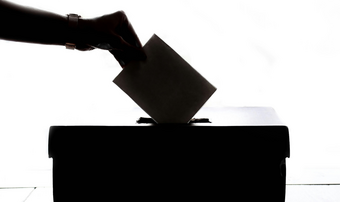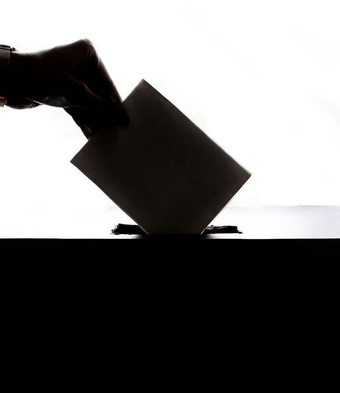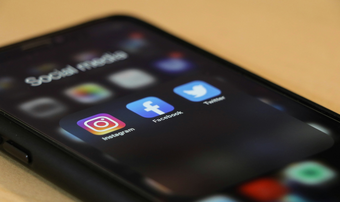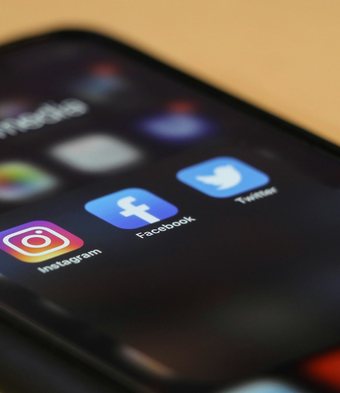The BBC and the question of neutrality
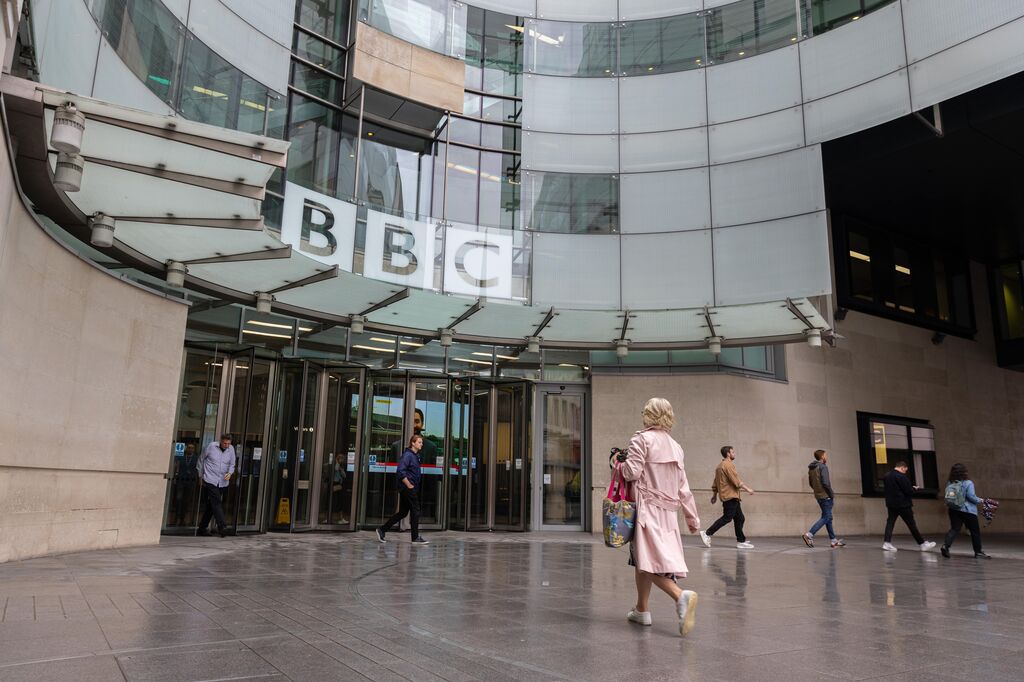
Every Sunday, as I walk up Regent Street to church, I pass the entrance to Broadcasting House, home of the BBC since 1932. In the covered passage to the right of the building, stands a statue of George Orwell, a former employee, with the words from the original preface to ‘Animal Farm’: "If liberty means anything at all, it means the right to tell people what they do not want to hear".
The BBC is the oldest and largest global broadcaster in the world; it is a cultural institution, with a (largely deserved) historic, worldwide reputation for its fairness, its excellence in reporting, and its commitment to liberty and freedom of expression.
As our national broadcaster, funded by public money raised through the license fee, it has a unique place in our public life, and has traditionally elicited a deference: many of us tend to operate under the assumption that the BBC wouldn’t lie to us, that it couldn’t lie to us, with its strict editorial guidelines over neutrality and factual reporting. It is not for nothing that its nickname has been ‘Auntie’, which is believed to have its origins in the phrase ‘Auntie knows best’.
But in the last couple of weeks, that impression has been shattered after a spate of stories, uncovered by ‘The Telegraph’, revealed misleading editing, questionable reporting, and fatally, a lack of balance. There is an adage in journalism that you should ‘never become the story’ yourself. But this week, the BBC news headlines have been dominated by coverage of the crisis that has engulfed itself.
For those who missed it, the story began after an internal report on BBC bias was leaked; the report was written by Michael Prescott, who had been an independent external adviser to the BBC’s Editorial Guidelines and Standards Committee. He had sent it to the BBC Board, suggesting that his repeated warnings had been “dismissed or ignored.” Although some have attempted to write off the criticism as a right-wing smear campaign, the facts of the story are pretty damning.
The BBC spliced together a speech of Donald Trump’s in the run-up to the 2024 Presidential election in a ‘Panorama’ programme called ‘Trump: A second chance’, creating a misleading impression that Trump was inciting violence.
The BBC has breached its own editorial guidelines more than 1,500 times in the conflict between Hamas and Israel, predominantly with anti-Israel bias.
One regular contributor to BBC Arabic, Mayssaa Abdul Khalek, has called for “death to Israel” and has defended a journalist who tweeted: “Sir Hitler, rise, there are a few people that need to be burned.” BBC Arabic alone has been forced to correct an average of two stories every week on the conflict in Gaza.
The BBC’s LGBT desk ensured that there was “a constant drip-feed of one-sided stories…celebrating the trans experience without adequate balance or objectivity” By contrast, stories exposing problems with transgender ideology were suppressed.
BBC Newsnight also doctored a speech by Donald Trump in a misleading way.
The atmosphere created by the revelations became sufficiently febrile that last weekend, Tim Davie, the Director-General of the BBC, handed in his resignation. He did not go into detail in his resignation statement, simply saying, “While not being the only reason, the current debate around BBC News has understandably contributed to my decision. Overall the BBC is delivering well, but there have been some mistakes made and as Director-General I have to take ultimate responsibility.”
His resignation was accompanied by one from Deborah Turness, the CEO of BBC News and Current Affairs, who firmly denied any allegations of institutional bias, whilst writing: “The ongoing controversy around the Panorama on President Trump has reached a stage where it is causing damage to the BBC – an institution that I love. As the CEO of BBC News and Current Affairs, the buck stops with me – and I took the decision to offer my resignation to the Director-General last night.”
I’m not going to attempt to sketch out my own thoughts on whether the BBC is actually biased or not, although I do think it’s noteworthy that in each of the examples cited above, the direction of travel was in a liberal preference each time. It is certainly the case that people on both left and right have criticised the BBC for a perceived lack of neutrality in recent years, although that does not in and of itself prove its success in occupying the middle ground.
But I do hope that the following reflections are helpful in sketching out what it actually means to be neutral, and whether such a thing is necessarily a helpful goal to aim for.
The necessity of truth
This should almost go without saying, but in light of the stories breaking in the last couple of weeks, perhaps it does need reiterating: neutrality can only be achieved by truly seeking after truth, and not by leaving people with false impressions.
This is something the BBC has rightly been criticised for, particularly with regard to the Donald Trump speech. I am personally no fan of the current President, but for anyone who thinks that the BBC is blameless (or who is claiming that abridging speeches is standard process), I do not see how one could possibly left with the correct impression when comparing the before and after versions of the below:
Before
“We’re gonna walk down, and I’ll be there with you, we’re gonna walk down, we’re gonna walk down any one you want but I think right here, we’re gonna walk down to the Capitol and we’re gonna cheer on our brave senators and congressmen and women and we’re probably not going to be cheering so much for some of them because you’ll never take back our country with weakness, you have to show strength and you have to be strong… I know that everyone here will soon be marching over to the Capitol building to peacefully and patriotically make your voices heard.”
54 minutes later, alleging (with no evidence) that the election had been the subject of corruption: “Most people would stand there at 9 o’clock in the evening and say I wanna thank you very much, and they go off to some other life, but I said something’s wrong here, something’s really wrong, can’t have happened, and we fight. We fight like hell, and if you don’t fight like hell, you’re not gonna have a country any more.”
After
“We’re gonna walk down to the Capitol and I’ll be there with you and we fight. We fight like hell and if you don’t fight like hell you’re not gonna have a country any more.”
The impression anyone would be left with is that Donald Trump was encouraging people to march upon the Capitol to fight there (as indeed, some did in the January 6th riots), and that he had said he would be fighting alongside them. I do believe that the President’s actions around those affairs can be criticised, but we cannot play fast-and-loose with the truth in order to do so.
As Christians, we have particular grounds for caring about truth: we worship a Jesus who claimed that he was the truth, and that “anyone on the side of truth” listens to him. He came from the Father, “full of truth and grace” (John 1:14). Truth is God’s domain; it is the Devil who is ‘the Father of lies’. We read in Numbers 23:19 that “God is not human, that he should lie, not a human being, that he should change his mind”. It is not just that God does not lie: he actually cannot lie.
As disciples of Jesus, we want to imitate him, who never lied: we read in 1 Peter 2 that “no deception was found in his mouth”. We should resist the temptation to overstate a case, or to mislead, and we must report facts even when they are inconvenient to us.
To do so, it will be worth making sure we do not just listen to one side of a story (which was the issue in some of the BBC’s reporting), and that we can sift through the spin, whether that be from news-outlets or political parties. When we write our news stories here at CARE, we generally try to read about the story from more than one publication first: sometimes we find that, on closer inspection, a story that looked like it was worth writing about isn’t such a big deal after all!
Being aware of bias
As I’ve followed the story, I’ve been reflecting on some of the challenges any organisation faces in adopting a position of neutrality. At CARE, we are politically neutral: we do not support any political party or particular candidate. We do have license on a Friday to write these opinion pieces on the big story of the week, but we are still mindful that we are representing CARE as an organisation.
The difficulty is a straightforward one: no one is ever truly neutral. We all approach any story with a series of background beliefs: assumptions we make about the world around us, which then inform how we interpret the events we witness.
As an example, consider how the broad response to the BBC story has been split along party lines: Lisa Nandy, the Culture Secretary, largely came out to bat for the BBC: “The BBC is not just a broadcaster. It is a national institution that belongs to us all.” She also described it as “by far the most widely used and trusted source of news in the United Kingdom” and “a light on the hill for people here and across the world”. By contrast, the Shadow Culture Secretary Nigel Huddleston, said: “The BBC is in a sorry mess and sadly one of its own making…Too many examples have come to light exposing bias at the BBC, particularly as it relates to news and current affairs output.”
But it’s not just a problem for political parties: your response as an individual to any story will be shaped by a variety of factors, including (but not limited to) your own personal experience, your political philosophy, your religious views, and so on.
When I read about a story to do with, for example, immigration, I think about the teaching in Genesis that everyone is made in God’s image, about God’s instruction to ‘love the stranger’, and about the responsibility God has given governments to have a concern for its citizens. But I also think about the experiences I have had myself, the good and the bad: both the friends I have had (from schooldays to brothers and sisters in the Church) who were not originally from the UK, and the bad experiences I have had, whether it be witnessing youths on the underground or the feeling of being an outsider in certain parts of London. All of these things go into a melting pot, which we sometimes call a ‘worldview’.
It is not easy to sift through them in trying to work out what being neutral actually looks like. The first step is at least being able to recognise our inherent biases, and the ways in which that affects how we respond. We read in 1 John 1:8 that “if we claim to be without sin, we deceive ourselves and the truth is not in us.” A similar principle would surely apply to being without bias: if you don’t think you have it, I suspect you’re deceiving yourself!
The curious ‘virtue’ of neutrality
Neutrality is a curious concept. On one level, I’m not sure that it necessarily is a good thing.
Don’t get me wrong, I completely recognise (and affirm) the importance of a public broadcaster like the BBC seeking to be neutral; it is what stops it from being little more than an extension of a political party in a way that some of our newspapers are, and provides the opportunity for democracy to flourish, where people can have a voice without being told what to think or how to vote.
And as for its position as a state broadcaster, neutrality is essential, differentiating it from the likes of a Russia Today or an Al-Jazeera, who exist as mouthpieces for their respective governments.
But if we do believe in truth, then although neutrality may be a virtue for an organisation like the BBC, it isn’t - and indeed, can’t be - a genuinely Christian virtue. Because Christianity is not a neutral thing.
It makes a series of truth claims about the world, about the God who made it, and about who we are and how we should live. Those are statements which are either true or false: we can’t be neutral about them.
And similarly, we do recognise that we have biases, but that is not inherently a bad thing: I am very grateful that God has given me a bias to “do justly, to love mercy, and to walk humbly before the Lord our God” (Micah 6:8), because I genuinely believe that that is the best way to live!
This does not mean that we should approach the world arrogantly: one advantage that neutrality has is its ability to critique. In a world which is affected by the Fall, we need to recognise that we (and our understanding of God’s word, and how it applies to the world around us) are not immune, but fall short in all kinds of ways.
But when it comes to the big questions in the world around us - questions around war, around economics, around sexuality or gender - we cannot be truly neutral about them, and nor do I think we should be.
Sometimes people give the impression that neutrality is actually the position of humility, as it enables people to see the flaws more accurately. Or perhaps they might say that pursuing a middle way is best, because there is always an element of truth on both sides.
But not even a secular organisation like the BBC will ever be truly ‘neutral’, and nor should we expect them to be. For example, they rightly take a stance against Vladimir Putin’s illegal invasion of Ukraine, and whenever there is a terrorist attack, they’re not going to be trying to see it from the terrorist’s side (and we certainly wouldn't want them to!).
A quest for neutrality and the quest for truth will always, eventually, come into conflict.
We believe that as Christians, we have been given God’s word, as a “light to our feet, and a lamp unto our path”. The purpose of that lamp is not simply to see both sides of a story, but to guide us in the way we should live.
So let us approach topics humbly, in knowledge of our limitations, and that there will not always be easy answers, but we are not on the side of neutrality. We are on the side of truth. And truth is not neutral.

